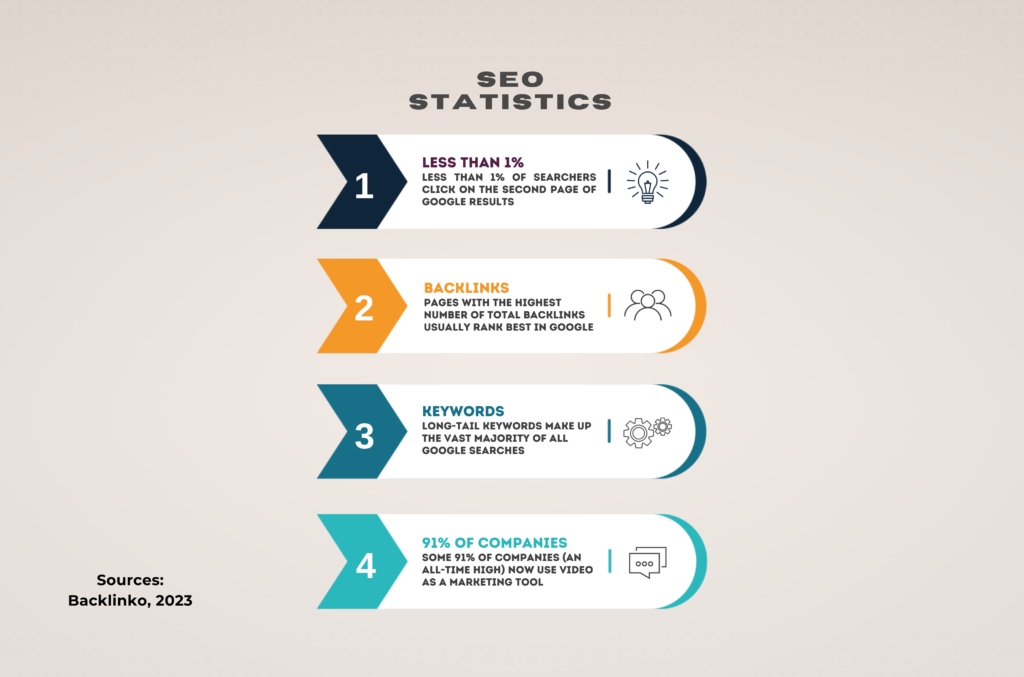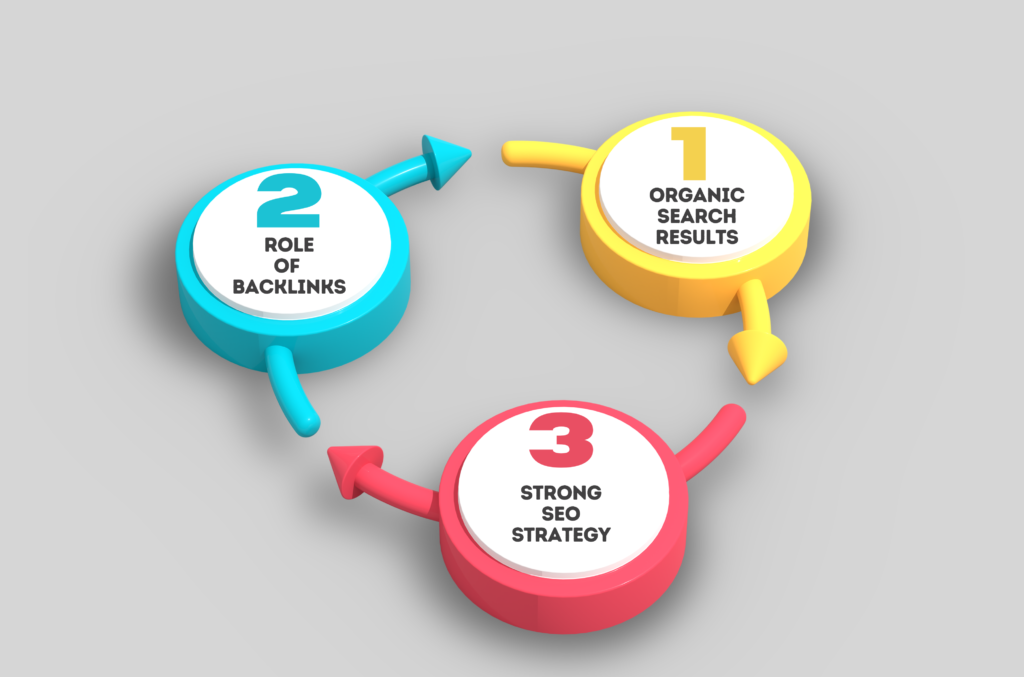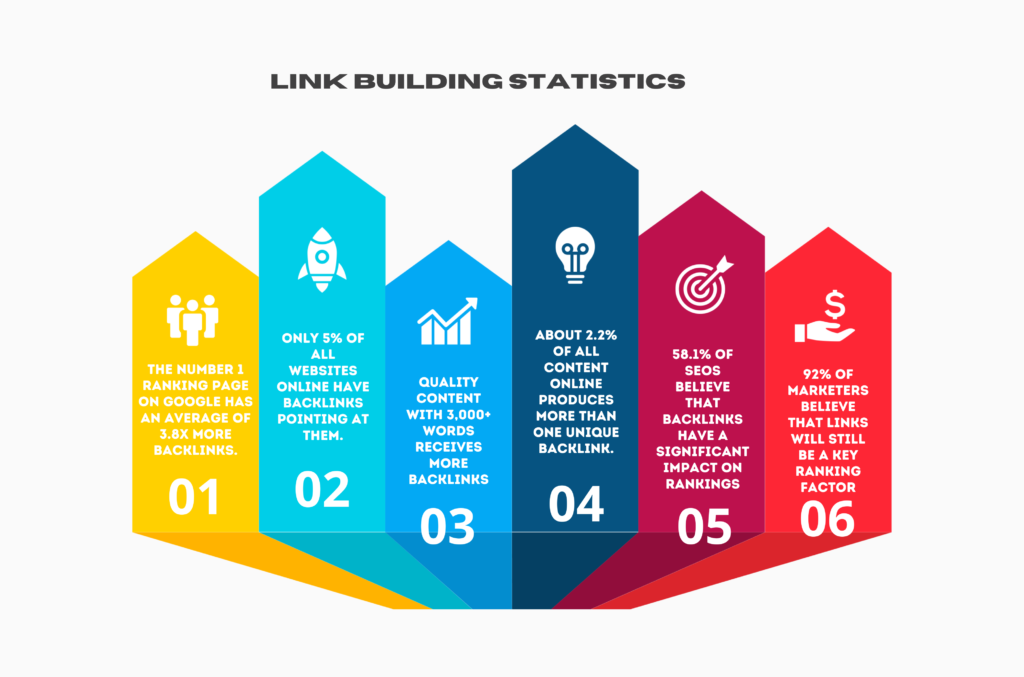Off-Page SEO: Boost Website Visibility
Off-page SEO, including building backlinks and natural links, is crucial for improving a website’s visibility and ranking on search engine results pages.
It can significantly impact page rank scores and boost high domain authority. Optimizing external factors such as backlinks, guest posts, and social media signals establishes a site’s authority and relevance for page search engine optimization.
This is a crucial page SEO tactic to improve search engine ranking using a reliable SEO tool.
This off-site optimization is crucial for driving organic traffic and improving the overall credibility of a website.
It also enhances local SEO, improves PageRank scores, and can be achieved with the help of an SEO tool or a page SEO tactic.
Over the years, off-page SEO has evolved significantly, with search engines emphasizing quality backlinks, natural anchor text, diverse link profiles, and page rank scores.
This is especially important for Google sites to rank for a specific keyword. Understanding the historical context of off-page SEO, including its impact on Google search traffic, provides valuable insights into current best practices for building links and optimizing sites for search engines.
Understanding Off-Page vs. On-Page SEO
Understanding the differences between off-page and on-page SEO is crucial for optimizing a website effectively, especially about Google’s PageRank scores, links, and sites.

Critical Differences Between Off-Page and On-Page SEO
Off-page SEO improves a website’s authority and trustworthiness through external factors such as backlinks, social media signals, influencer marketing, and increasing PageRank scores to enhance visibility in Google searches.
On the other hand, on-page SEO involves optimizing individual web pages to rank higher on Google and earn more relevant traffic through PageRank and links from other sites in search engines.
On-page optimization includes elements like keyword research, content creation, meta tags, heading tags, internal linking, URL structure, site SEO, PageRank, and links for improved Google rankings.
These factors directly impact the visibility of a webpage in Google search engine results pages (SERPs) by influencing links from other sites and how people find and interact with the content.
Examples of On-Page Optimization
Examples of on-page optimization include creating high-quality content that addresses people’s needs while strategically incorporating relevant keywords.
This can help improve the visibility of your website on Google and attract more visitors through links from other sites. Optimizing meta descriptions and title tags can enhance click-through rates from search results on Google.
This can improve the visibility of a site and increase the number of links to it. For example, a well-crafted meta description and title tag can lead to better click-through rates.
Proper use of header tags (H1-H6) helps Google understand the structure and context of the content on a site, making it easier for people to navigate and find relevant links.
Internal linking within a website’s content not only aids in user navigation but also distributes page authority throughout the site.
For example, Google values internal links to help people navigate the site. Furthermore, optimizing images with descriptive file names and alt text improves accessibility and better image search rankings on Google.
This is an excellent example of how links enhance the site’s performance.
How Off-Page SEO Complements On-Page Efforts
Off-page SEO complements on-page efforts by building credibility for a website across the internet.
It involves creating quality links, which can help improve a website’s ranking on Google and attract more people to the site. Backlinks from reputable websites act as “votes of confidence,” signaling to Google and people that the linked-to site is valuable and trustworthy.
Social media signals such as likes, shares, comments, and brand mentions increase brand visibility and audience engagement on the page.
This can also improve search engine optimization (SEO) and help people discover content through Google. Additionally, links from social media can further boost the page’s SEO.
Influencer marketing is another off-page strategy that can amplify a website’s reach by leveraging industry influencers’ authority to promote products or services.
It involves building relationships with influential people and obtaining links from reputable sources, which can improve a website’s visibility on Google and attract more people.
This form of collaboration can enhance brand awareness and expand audience reach beyond what on-page efforts can achieve through links and by getting more people beyond the site.
By understanding these distinctions between off-page and on-page SEO tactics, including the importance and complementary nature of links, digital marketers can develop comprehensive strategies that maximize their websites’ organic search performance.
The Importance of Off-Page SEO Strategies

Impact of Off-Page SEO on Organic Search Results
Off-page SEO, including building quality links, determines a website’s organic search rankings. When other reputable websites include links to a site, search engines view it as a vote of confidence.
This can significantly improve the site’s credibility and authority in search engines’ eyes, primarily through relevant links.
Backlinks are crucial for improving a site’s off-page SEO. They are among the most influential factors in boosting a site’s search engine ranking.
They act as “upvotes” for a website, indicating to search engines that the content is valuable and trustworthy.
These links are essential for improving a website’s visibility and credibility. Websites with higher-quality backlinks rank higher in search engine results pages (SERPs).
Quality backlinks from authoritative websites can enhance a website’s visibility and reach, increasing referral traffic and optimizing page search engines.
They contribute to establishing the site as an industry leader or expert in its field by including relevant links.
Role of Backlinks in Off-Page SEO
Backlinks are essential “votes” from other websites, signaling to search engines that the linked content is credible and relevant.
Websites with diverse high-quality backlinks often experience better organic search rankings.
An off-page solid SEO strategy can improve domain and page authority, which are vital metrics search engines consider when ranking web pages.
Building quality links to your site is essential for boosting these metrics. This leads to enhanced visibility and trustworthiness within the digital landscape and increased site links.
Benefits of a Strong Off-Page SEO Strategy
Implementing an effective off-page SEO strategy can yield numerous benefits for a website, including improving search engine rankings through building quality links.
It enhances organic search rankings and boosts brand awareness and online reputation by creating quality links to your site.
A robust off-page SEO strategy fosters connections with influencers, bloggers, and industry leaders, potentially leading to collaborations or partnerships that can further elevate a brand’s online presence through links.
By obtaining natural backlinks from reputable sources, websites can establish themselves as reliable sources of information within their respective industries.
This ultimately contributes to sustained long-term success in organic search rankings by building high-quality links.
Fundamentals of Effective Link Building
Link building is a crucial aspect of off-page SEO, contributing significantly to a website’s authority and search engine rankings.
It involves acquiring high-quality backlinks from authoritative websites to improve a site’s visibility and credibility.

Importance of High-Quality Backlinks
Quality backlinks are essential for boosting a website’s ranking in search engine results. They serve as “votes of confidence” from other sites, indicating to search engines that the linked content is valuable and trustworthy.
Quality backlinks come from reputable and relevant sources, signaling to search engines that the linked website is an authority in its field.
Different Link Building Techniques
- Guest Posting: This technique involves creating content for other websites within your niche, including a backlink to your site. It helps establish authority, gain exposure, and acquire quality backlinks.
- Broken Link Building: This method entails finding broken links on other websites and contacting the site owner to suggest replacing the broken link with a link to your relevant content. It provides an opportunity to offer value while gaining quality backlinks.
- Resource Link Building: This technique involves creating comprehensive and valuable resources on specific topics within your industry, which can attract natural links from other websites seeking authoritative information.
- Infographic Outreach: Creating visually appealing infographics can effectively earn backlinks when shared by other websites seeking engaging visual content.
Tools for Analyzing Backlink Profiles
- Ahrefs: This tool allows users to analyze their backlink profile and those of competitors, providing insights into link-building opportunities and potential areas for improvement.
- Moz Link Explorer: It offers valuable data on domain authority, anchor text analysis, and spam score assessment, aiding in understanding the quality of existing backlinks and identifying new linking prospects.
- SEMrush: With its extensive database, SEMrush enables users to conduct thorough competitor analysis regarding their link-building strategies, helping identify potential opportunities for acquiring quality backlinks.
By effectively utilizing these techniques and tools, businesses can enhance their link-building strategy, leading to improved organic traffic through higher search engine rankings and establishing themselves as authoritative sources within their respective industries.
Content Marketing and Its Off-Page Impact
Relationship Between Content Marketing and Off-Page SEO
Content marketing plays a crucial role in off-page SEO by creating valuable content that attracts backlinks from other websites.
When high-quality content is shared across the web, it naturally garners more attention, leading to increased backlinks and improved off-page optimization.
Creating Shareable Content for Off-Page Optimization
Creating shareable content involves producing articles, infographics, videos, or other informative, engaging, and relevant materials to the target audience.
Crafting valuable content that resonates with users increases the likelihood of being shared on various platforms, thereby enhancing off-page SEO efforts.
Utilizing Guest Blogging for Content Distribution
Guest blogging allows content distribution across different platforms while obtaining backlinks from reputable websites.
By contributing well-crafted articles to industry-related blogs or news sites, businesses can expand their online presence and attract new audiences while improving their off-page SEO through brand mentions and link placements.
Leveraging Social Media for SEO
Social media is crucial in influencing search rankings and overall off-page SEO strategies.
Optimizing social media profiles for search engines and encouraging engagement and sharing on these platforms is essential.
How Social Media Signals Influence Search Rankings
Search engines like Google consider social media signals, such as likes, shares, and comments, when determining a website’s relevance and authority.
The more engagement a piece of content receives on social media, the more likely it is to rank higher in search results.
For instance, if a blog post receives numerous shares on platforms like Facebook or Twitter, it indicates to search engines that the content is valuable and relevant to users.
Strategies for Optimizing Social Media Profiles for Search Engines
Optimizing social media profiles involves using relevant keywords in profile bios, descriptions, and posts to improve visibility in search results.
For example, incorporating popular industry-related hashtags into posts can increase the likelihood of being discovered by users searching for specific topics.
Ensuring consistency with accurate business information across all social platforms can enhance credibility and trustworthiness.
Importance of Engagement and Sharing on Social Platforms
Engagement metrics such as likes, comments, and shares not only indicate user interest but also contribute to improved search engine ranking.
Encouraging followers to share content can significantly expand its reach and attract new visitors to a website or blog.
Furthermore, active participation in discussions within social communities can establish brand authority and foster relationships with potential customers.
By strategically leveraging social media marketing efforts alongside traditional SEO tactics, businesses can effectively boost their online visibility while engaging with their target audience through various channels.
Enhancing SEO with Influencer Marketing and Local Strategies
Leveraging Influencers for Backlink Acquisition
Incorporating influencer marketing into off-page SEO efforts can significantly enhance backlink acquisition.
Influencers mentioning a website or brand on their platforms often result in valuable backlinks from reputable sources, which can positively impact search engine rankings.
Importance of Local Citations for Businesses Targeting Specific Areas
Local citations play a crucial role in the online visibility of businesses targeting specific geographic areas.
These citations mention a business’s name, address, and phone number (NAP) on online platforms such as directories, review sites, and local listings.
They help potential customers find local businesses and signal to search engines that the business is relevant to a particular location.
Strategies for Incorporating Local Keywords into Off-Page Efforts
Incorporating local keywords into off-page SEO strategies is essential for businesses attracting local customers.
By optimizing content with location-specific keywords and creating backlinks from local websites and directories, companies can improve their visibility to users searching for products or services in their area.
This approach helps rank higher in local search results and reach new audiences.
When influencers endorse a local business on social media or through collaborations, it can lead to increased visibility among potential customers within the same geographic area.
For instance, an influencer showcasing a local restaurant’s specialties on Instagram can attract nearby residents who may become loyal patrons.
Local citations serve as digital references that validate the existence and credibility of a local business within its community.
For example, when a company is consistently listed across various reputable platforms like Yelp, Google My Business, and Yellow Pages with accurate NAP details, it reinforces its legitimacy and trustworthiness among potential customers.
Incorporating location-specific keywords into guest blog posts or press releases targeted at regional publications can boost a business’s presence in local search results.
For instance, I was using phrases like “best pizza in [city name]” or “top-rated [service] near [location]” strategically within content, which contributes to improved rankings for relevant local searches.
By collaborating with influencers with significant followings within specific regions, businesses can tap into new audiences interested in locally offered products or services.
For instance, partnering with a famous travel blogger to promote a boutique hotel can attract travellers seeking unique accommodations in that particular area.
Utilizing consistent NAP details across all online platforms ensures that search engines recognize the business as associated with a specific location.
This uniformity enhances the chances of appearing prominently in localized search results when potential customers look for relevant products or services nearby.
Advanced Techniques for Off-Page SEO
Link Building Strategies
Advanced off-page SEO involves employing sophisticated link-building strategies to enhance page search engine optimization.
The skyscraper technique, known for creating exceptional content to attract high-quality backlinks, and resource page link building, which involves getting your content featured on resource pages of authoritative websites, are crucial tactics in this domain.
Online Communities and Forums
Leveraging the power of online communities and forums is instrumental in acquiring valuable backlinks.
Participating in discussions and providing insightful contributions within relevant communities can lead to natural link acquisition.
Engaging with community members and offering genuine value can result in organic link placements from high-domain authority sites.
Data-Driven Content for Backlinks
Utilizing data-driven content plays a pivotal role in attracting authoritative backlinks.
Creating content backed by thorough research, statistical data, or case studies establishes credibility and entices other websites to cite your work, thus contributing to improved PageRank scores.
Auditing and Improving Off-Page SEO Tactics
Tools for Auditing Backlink Profiles and Anchor Text Distribution
Tools like Ahrefs or Moz’s Link Explorer can provide valuable insights into the backlink profile to enhance off-page SEO.
These tools help analyze the quality and quantity of backlinks pointing to a website and anchor text distribution.
By examining these metrics, marketers can identify which websites link to their content and ensure that the anchor text aligns with their target keywords.
Identifying and Disavowing Toxic Backlinks
Identifying toxic backlinks is crucial in maintaining a healthy backlink profile. Tools such as Google Search Console enable web admins to identify potentially harmful links pointing to their site.
Once placed, using the disavow tool within Google Search Console allows web admins to request that Google does not consider specific links when assessing their site.
This process helps mitigate the negative impact of low-quality or spammy backlinks on search rankings.
Revisiting Content Promotion Strategies to Improve Off-Page Impact
To bolster off-page SEO impact, revisiting content promotion strategies is essential. This involves leveraging various channels such as social media platforms, influencer outreach, guest blogging, and online communities.
By re-evaluating these strategies, businesses can amplify their content reach and attract high-quality backlinks from authoritative sources.
Utilizing Online Reviews for Off-Page SEO Tactic Enhancement
Online reviews play a significant role in off-page SEO tactics. Positive reviews contribute to building credibility and influence search traffic by enhancing click-through rates on search engine result pages (SERPs).
Encouraging satisfied customers to leave reviews on platforms like Google My Business, Yelp, or industry-specific review sites can significantly impact off-page SEO efforts.
Maximizing Search Traffic through Effective Off-Page SEO Tactics
Implementing robust off-page SEO tactics directly impacts search traffic by improving a website’s visibility in organic search results.
High-quality backlinks from reputable websites act as upvotes for a site’s credibility in the eyes of search engines, leading to improved rankings and increased organic traffic.
Conclusion
In conclusion, off-page SEO is critical to any comprehensive search engine optimization strategy.
Businesses can enhance their online visibility and authority by understanding the distinction between on-page and off-page SEO and leveraging effective link-building, content marketing, social media, influencer marketing, and local strategies.
Auditing and continually improving off-page SEO tactics are essential for maintaining a competitive edge in the digital landscape.
Staying abreast of advanced techniques as search engine algorithms evolve becomes increasingly crucial for sustained success.
Incorporating these off-page SEO strategies can yield significant benefits for those seeking to elevate their online presence.
By implementing these tactics precisely and consistently, businesses can position themselves for greater organic traffic, higher search engine rankings, and increased brand recognition.
Frequently Asked Questions
What is Off-Page SEO?
Off-page SEO refers to the actions taken outside of your website to impact your rankings within search engine results pages.
This includes link building, social media marketing, and influencer collaborations.
How does Off-Page SEO differ from On-Page SEO?
Off-Page SEO builds backlinks and natural links to improve search engine ranking and page rank scores.
On-Page SEO focuses on optimizing elements within a website, such as content and HTML source code.
At the same time, Off-Page SEO involves external factors like backlinks and social signals that affect search engine rankings.
Why are Off-Page SEO strategies essential?
Off-page SEO strategies are crucial because they signal to search engines the authority, relevance, and popularity of a website.
Effective off-page tactics can significantly enhance a site’s visibility and credibility in search results.
What are the fundamentals of effective link-building?
Effective link-building involves acquiring high-quality backlinks from reputable websites.
This process requires creating valuable content, contacting relevant sources for guest posting or collaboration opportunities, and ensuring diverse anchor text usage.
How does content marketing impact Off-Page SEO?
Content marketing is vital in Off-Page SEO by attracting natural backlinks and social shares.
High-quality content that offers value to users can generate organic traffic and improve a website’s authority and relevance in the eyes of search engines.






